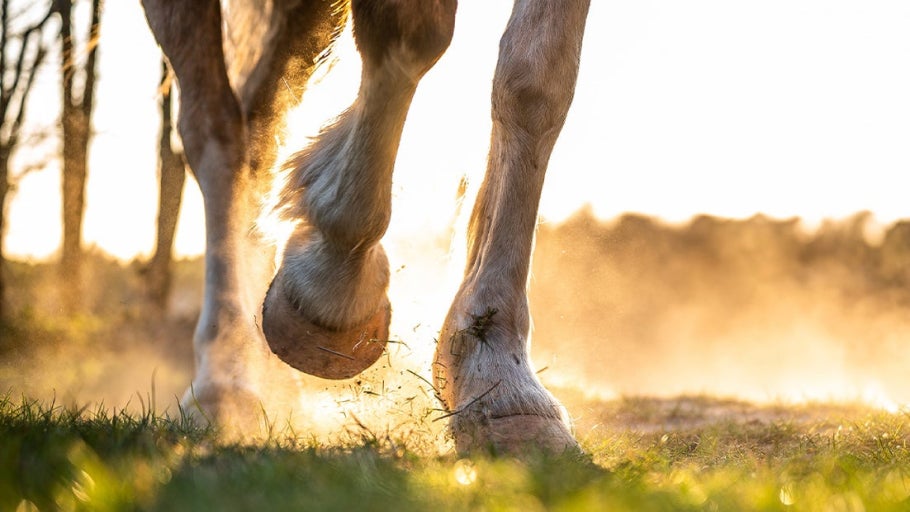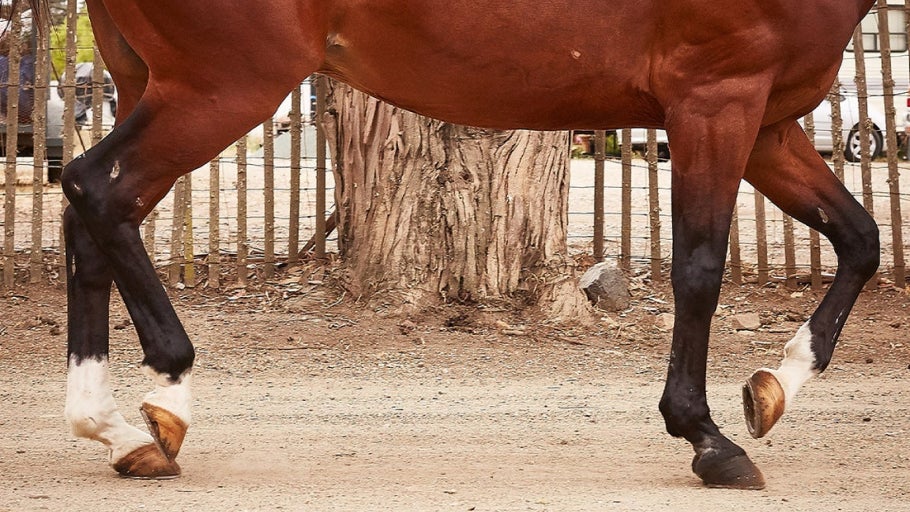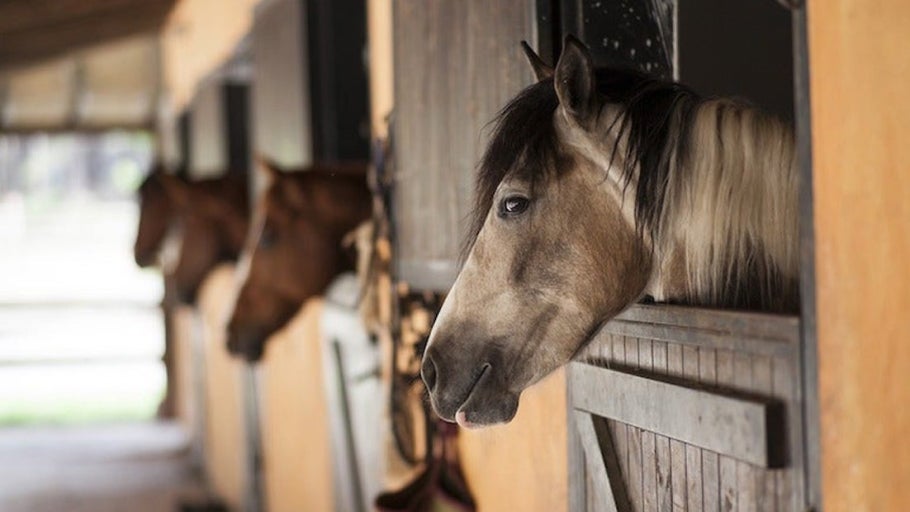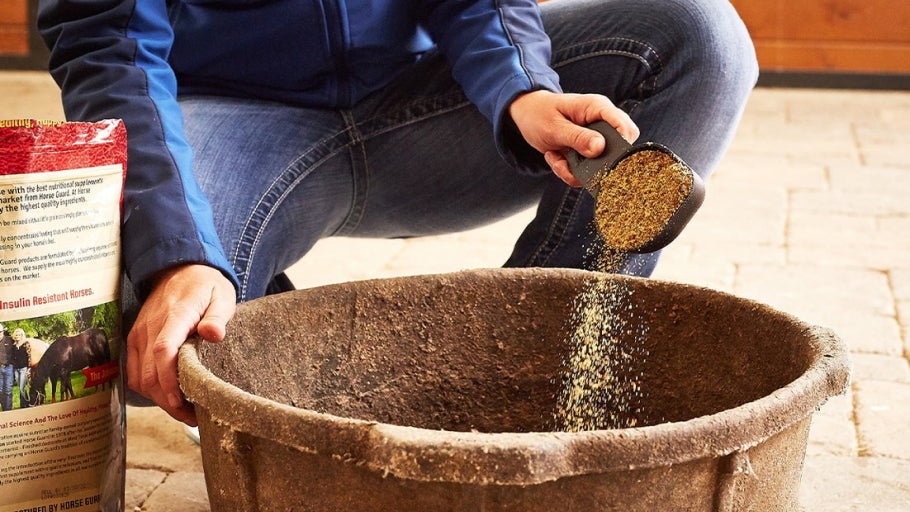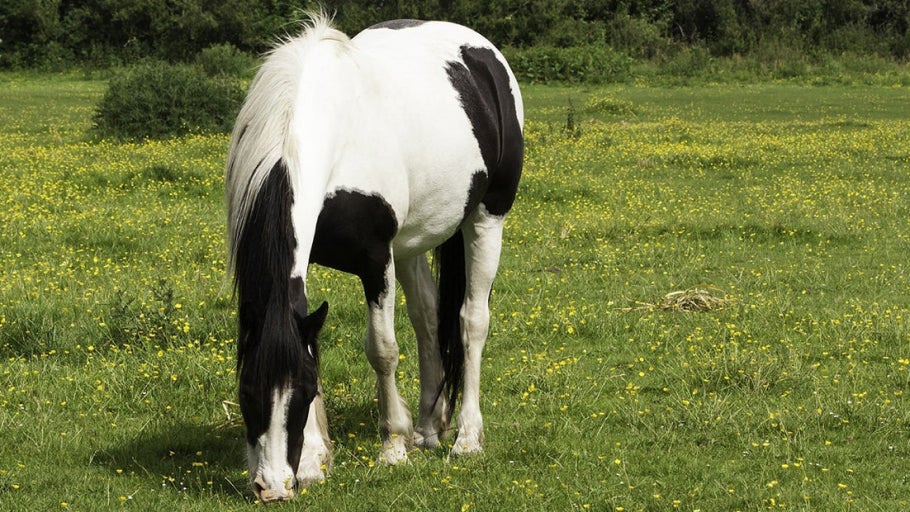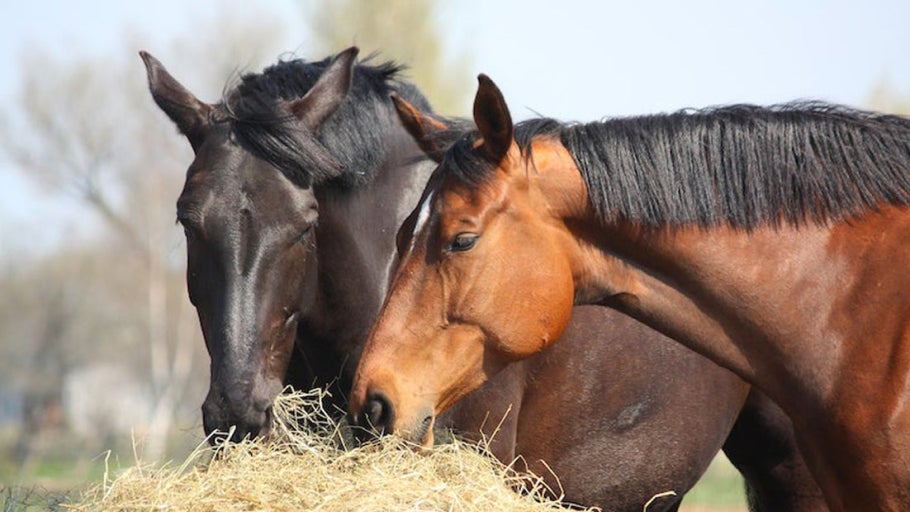
The Scoop on Equine Electrolytes
Most horse owners know how important it is for their equine to be hydrated, but it can be difficult to know if and when you should feed electrolytes. The seemingly obvious time is during hot, summer months; however, hot weather isn't always the only time your horse needs electrolytes. Not all electrolyte supplements are the same type or offer the same ingredients either, and some electrolytes are more concentrated than others. Choosing the right electrolyte for your horse can feel a little overwhelming when you start to look into all that is available. In this edition of The Scoop On Supplements, we will explain what electrolytes are and why they are important, ingredients found in electrolyte supplements and horses that can benefit from them, and even give you some tips for keeping your horse hydrated.
What Are Horse Electrolytes?
Electrolytes are essential minerals that support fluid regulation, nerve function, muscle contraction and relaxation, acid-base balance, and other important functions in a horse's body. When there is an imbalance of electrolytes, issues like dehydration, slow recovery, weakness, and muscle cramping are common. Even an abnormal heart rhythm or metabolic problem is possible with an electrolyte imbalance, which is why it’s important to make sure these essential minerals get replaced when your horse needs them.
Electrolytes are lost on a daily basis through urine and feces, however, the greatest amount is lost through sweat. In fact, a horse exercising and sweating heavily can lose up to 15 liters of sweat per hour. While performance horses and those working in hot or humid weather typically sweat the most, horses with lighter workloads and those living in milder climates also require these essential minerals. Check out this study by the National Library of Medicine for more science-backed research on the benefits of oral electrolyte supplements for horses.
Electrolyte Supplement Ingredients
The main electrolytes that horses lose through sweat are sodium, chloride, and potassium. Calcium, magnesium, and other trace minerals are also lost, but in smaller amounts. During prolonged exercise, a horse is most likely to become deficient in chloride!
- Sodium: Sodium helps the body manage fluid balance by helping to retain water. Sodium also triggers the “thirst” sensation, which encourages your horse to drink. Sodium is lost at twice the rate of potassium. Horses at rest need about 1oz of salt daily.
- Chloride: Chloride pairs with sodium to create sodium chloride, otherwise known as table salt. Not only is chloride important for fluid regulation, but it is also used to support hydrochloric acid production in the stomach. It also helps maintain acid-base balance in the body.
- Potassium: Along with sodium, potassium helps regulate fluid balance, muscle contraction, and relaxation. Most horses get enough through their diet since forage is high in potassium.
- Calcium: The majority of calcium is found in the bones and teeth, however, it also plays a vital role in nerve function and muscle contraction.
- Magnesium: Magnesium functions as a cofactor for hundreds of reactions in the body, from energy production to DNA synthesis. It’s also critical for nerve function and muscle relaxation.
- Sugar: Although it’s not an electrolyte, sugar is added to supplements to increase palatability. While a small amount may be beneficial, too much can dilute the electrolytes in each serving—you will have to feed more to have the desired effect. If you’re looking to limit excess sugar or have a horse with health conditions that require no sugar, it’s a good idea to avoid products that list sugar, corn syrup, or dextrose as the first few ingredients.
Suggested Electrolyte Use in Horses
Electrolyte supplements can come in powder, pellet, and paste forms. Powders can be added on top of grain or diluted in a bucket of water. Pellets can simply be blended into grain rations. Paste is handy for use on-the-go or at times when the horse may not be able to eat grain, such as when hauling or during competitions. We suggest visiting our guide on Endurance Horse Post-Ride Care for the best practices on administering electrolytes pre-ride and post-ride, as well as for more tips on caring for the performing endurance horse.
For horses in light work and/or living in mild climates, electrolyte requirements are usually met with a balanced diet. If you want to give your horse an opportunity to consume more salt without feeding a supplement, salt and mineral blocks are an easy addition to their stall or pasture; these are great options for horses living in areas with weak mineral levels within the soil.
Performance horses in heavy work, horses that live in hot and/or humid climates, and horses under stress can benefit from 1-4oz of salt or an electrolyte supplement daily. If giving more than 2oz, try to split it up into two feedings during the day. As long as plenty of fresh water is provided and you are following the feeding guidelines listed on the supplement, your horse will flush out any excess electrolytes that they don’t need. You generally don’t need to worry about giving too much, but it is still possible to overdose on electrolytes and cause metabolic issues in your horse; you should exercise caution to ensure you're providing your horse with adequate amounts of water when administering electrolytes.
In colder climates, electrolytes provide benefits even in winter months. You may choose to change up your electrolyte routine during these months to balance out other missing minerals. Typically, the average electrolyte dose during winter months can help encourage your horse to drink when the cold water may not be as appealing to them. It is hard and sometimes impossible to provide warm water during frigid weather, and hydration is critical for your horse's gut and muscular health! Some areas experience restricted turnout time during wet or icy conditions, and adding a mineral-heavy electrolyte supplement into your horse's diet can help keep their nutrition balanced during these times of the year. For more suggestions on caring for your horse during the wintertime, check out our Winter Horse Care Tips!
Horse Hydration Tips
When it's hot out, it is especially important to keep your horse hydrated as they're at higher risk of nutrient deficiencies that can lead to worse issues; electrolytes assist in keeping your horse more effectively hydrated. We highly encourage you to check out our guide on Horse Care for the Summer for further insight on how you can best help your horse during the warmer months. In the meantime, the tips provided below will help you hydrate your horse:
1. Make sure your horse always has fresh water available with nothing else added, even if you are also providing a bucket with electrolytes.
2. Put a salt or mineral block in your horse’s stall or pasture.
3. Feed 1-2oz of loose salt or an electrolyte supplement in hot or humid weather and during times of stress. Feed higher concentrations as needed during intense, prolonged exercise.
4. When traveling, try to bring along water from home if your horse is picky. Or bring the Horse Hydrator, which filters foreign tastes and scents out to incentivize your horse to drink!
5. Soak travel hay nets prior to loading up. This can get some water into your horse if they won't drink while in transit.
6. Add water to your horse's grain, or make a mash for them to enjoy (this is good for home or when away).
7. Add 1oz, or the lower maintenance dose, of electrolytes into a warm mash or regular feed during cold months to encourage drinking. Dehydration can easily happen in cold weather when cold water loses its appeal.
Frequently Asked Questions
Should I give my horse salt or electrolytes?
Most horses receive all of their nutritional needs from a well-balanced diet of high-quality forage and therefore do not require electrolyte supplementation. Many horse owners will provide a white and/or mineral salt block to their horses for them to lick when they want to. A salt block will typically provide sufficient minerals for daily maintenance and horses in light work. If you're doing moderate training, your horse could benefit from being fed loose salt daily, with the amount depending on their weight and workload. Performance horses doing strenuous exercise, like endurance horses, will need electrolytes supplied to hydrate them and speed up their recovery from the mineral depletion of sweating more heavily during training, competitions, and trailering.
How often do I administer electrolytes? How much?
Electrolytes come in different forms to suit you and your horse's preferences. For example, you can give a powdered electrolyte mixed in with water or top dress feed with a pelleted electrolyte. If you're on the go with trailering or at a competition, you might prefer the convenience of an electrolyte paste. How often you feed the electrolyte in question is dependent upon a variety of factors, such as: the weather conditions, whether the horse is or is not drinking water, how much their sweating, the stressor taking place, the horse's weight, and more. It will take some trial and monitoring to find an electrolyte process that works best for your individual horse, as some horses become dehydrated quicker than others. The average dose is 1oz per serving, whether you're preloading an hour before trailering as a preventative or replenishing minerals lost after a strenuous ride. Always make sure your horse is drinking water well and preferably has some food in their stomach before you give electrolytes!
What are the signs of dehydration in horses?
If your horse is becoming dehydrated, you might notice issues like lethargy, poor performance, a decreased appetite, muscle cramps, skin tenting, and more. Dehydration can be common in most disciplines, and electrolyte supplementation is helpful to replace what the horse has lost through sweating. Always be sure to provide your horse plenty of water, and be aware that dehydration can start to occur after an hour or more of exercise or transport.
Closing Thoughts
Keeping your horse's electrolytes balanced year-round is pivotal to their overall health. Not only does it aid in healthy hydration, which is essential to gut and overall health, but the salts and minerals are critical to muscle health and recovery. There are many forms and delivery methods to get electrolytes to your horse; if they dislike one form or product, there are plenty of others to try to help your horse feel their best!
If you have any questions regarding your specific horse's diet and health, we strongly suggest that you reach out to your vet or an equine nutritionist. For questions regarding supplement products, please contact our customer service by calling 1(800)620-9145 or by emailing info@ridingwarehouse.com. Happy riding!
Further Reading
We understand that you may want to do more research on horse diet/nutrition and its related conditions. That's why we compiled some great sources below, so you can take a deeper dive!
- National Library of Medicine on Oral Electrolyte and Water Supplementation in Horses
- Mad Barn on Best Electrolyte Supplements for Horses: A How-To Guide
- FeedXL Equine Nutrition on Does Your Horse Need Electrolytes?
- Kentucky Equine Research on Equine Electrolyte Supplements: Three Tips
Related Articles

